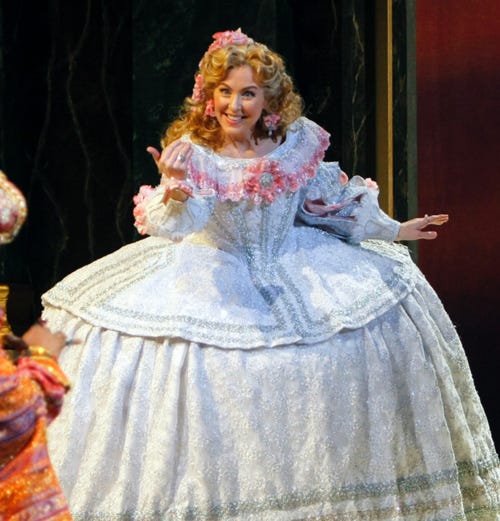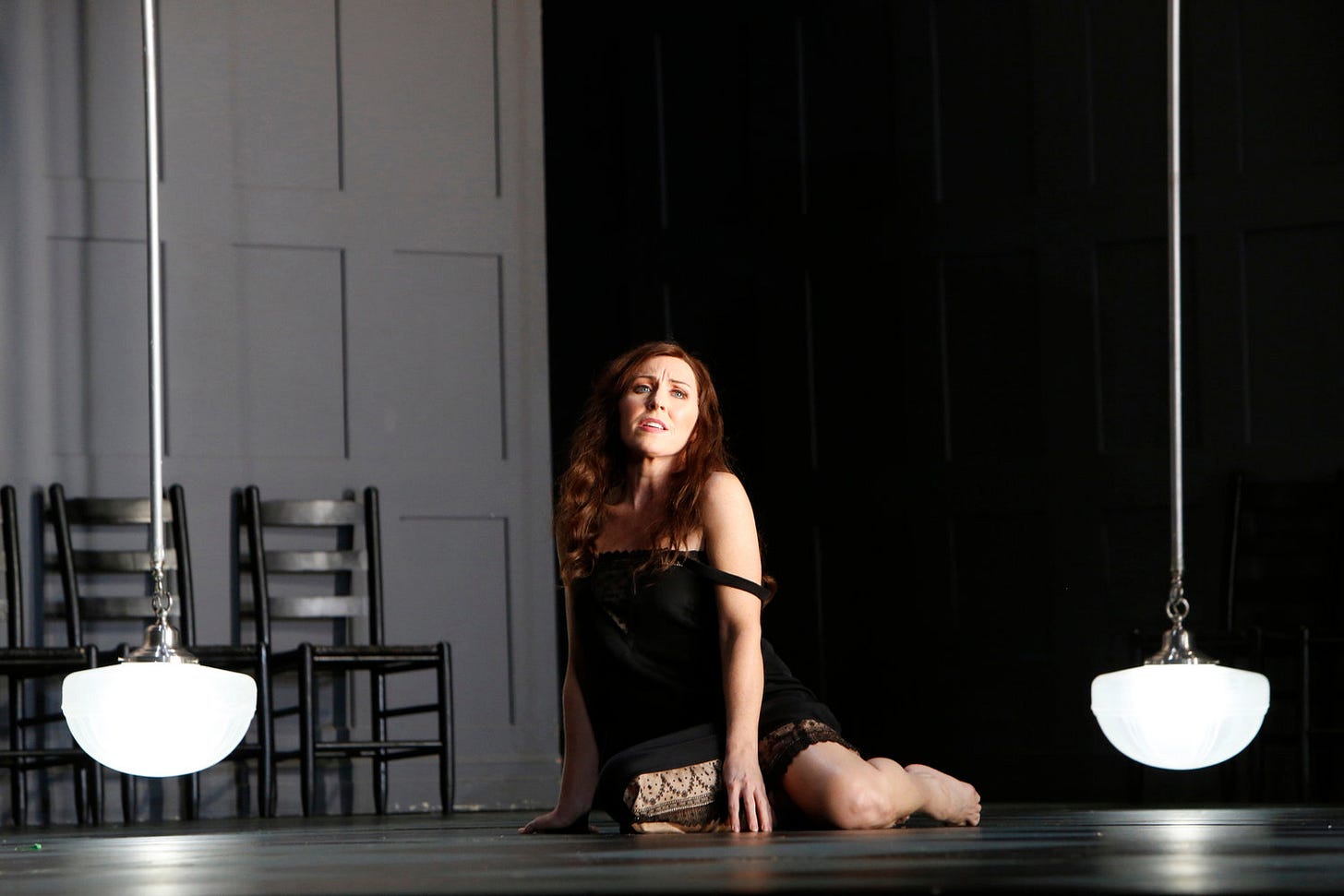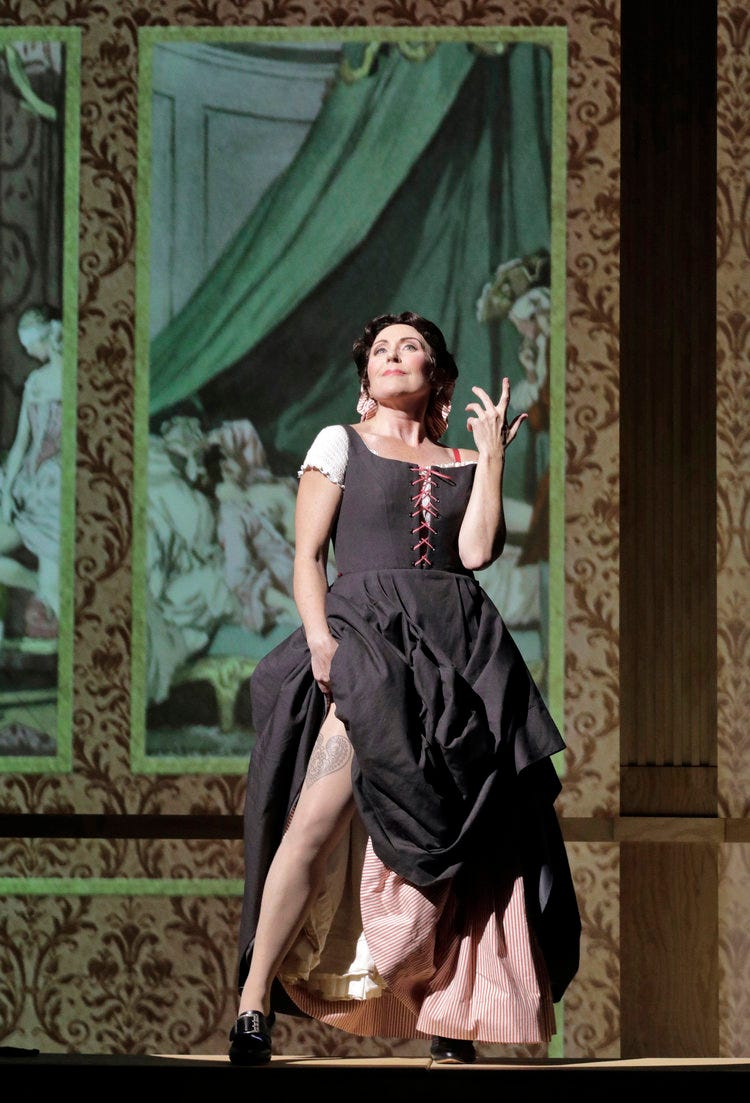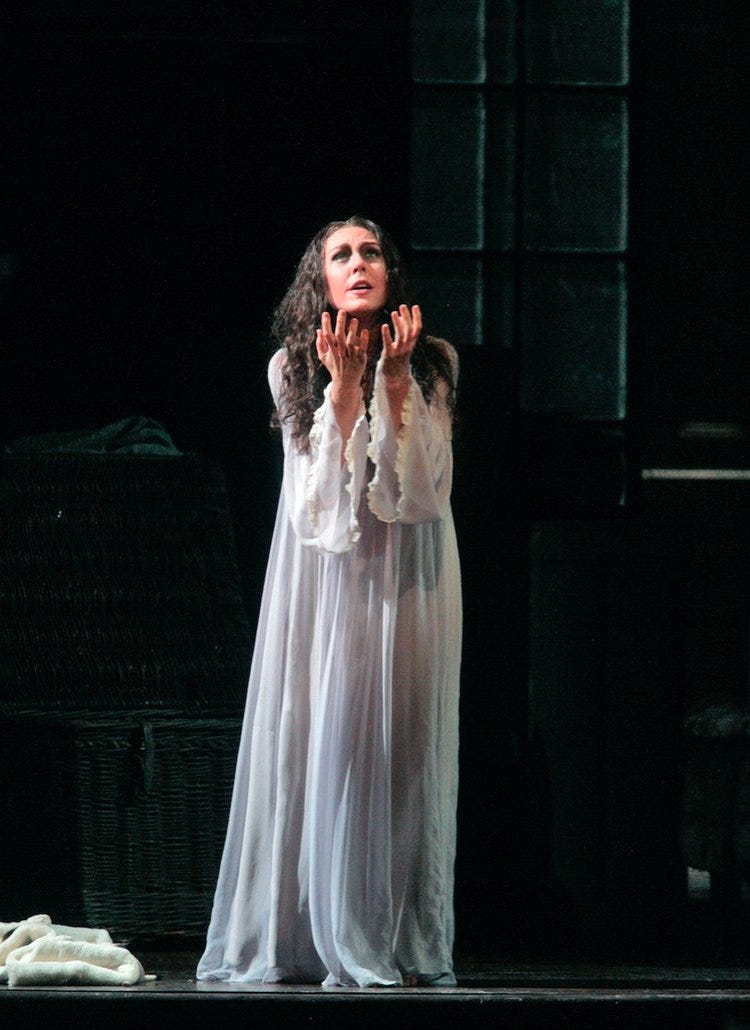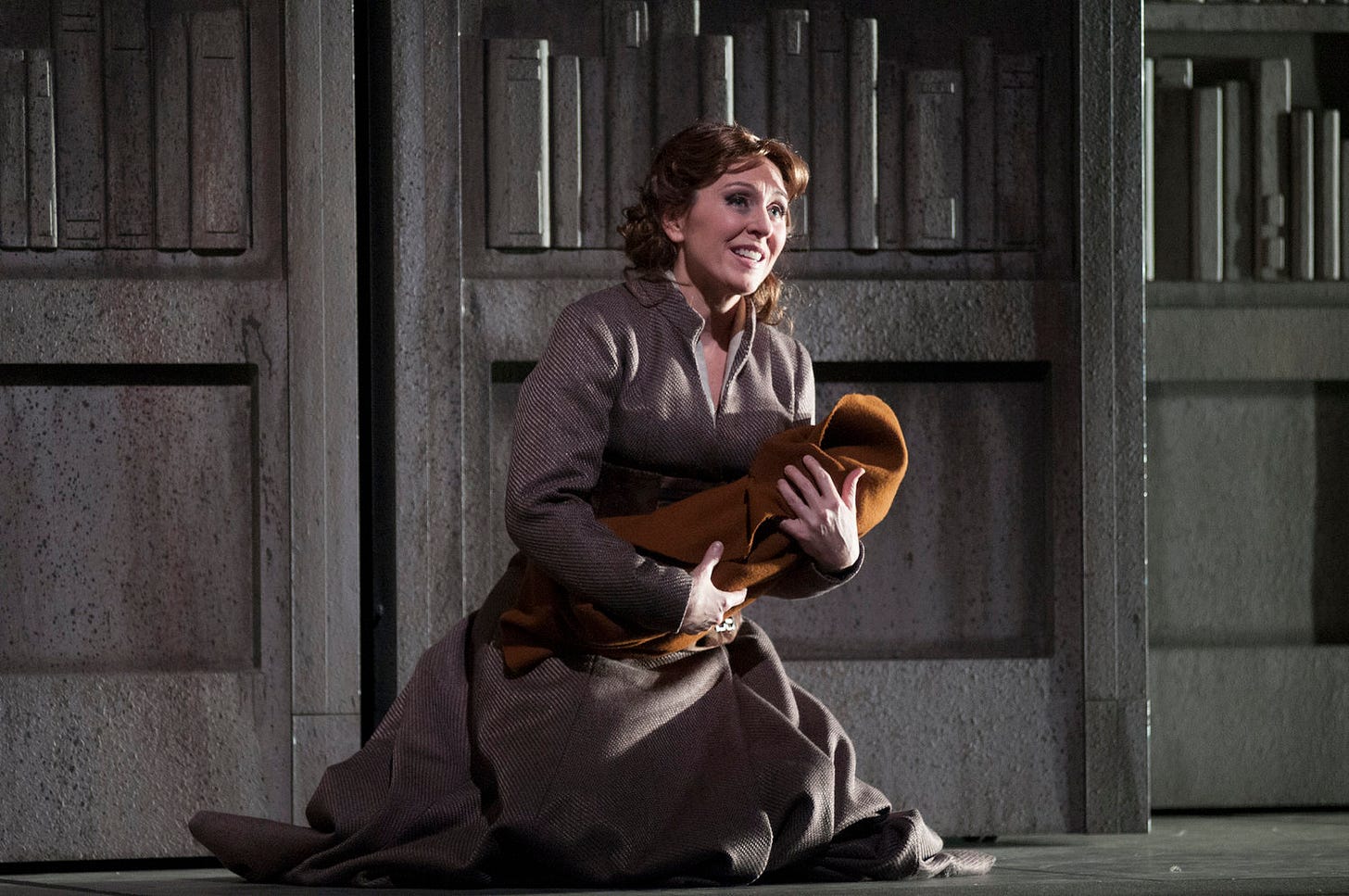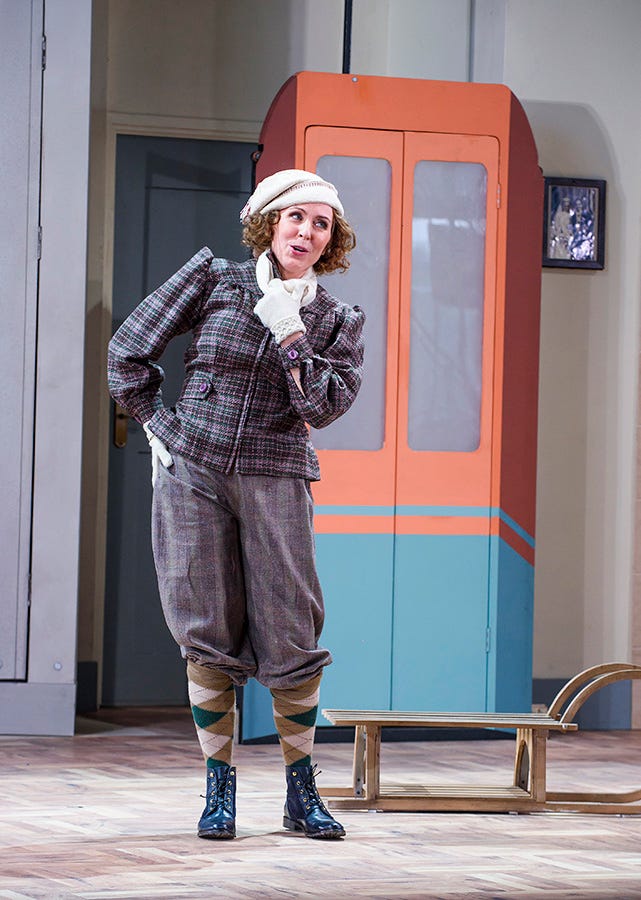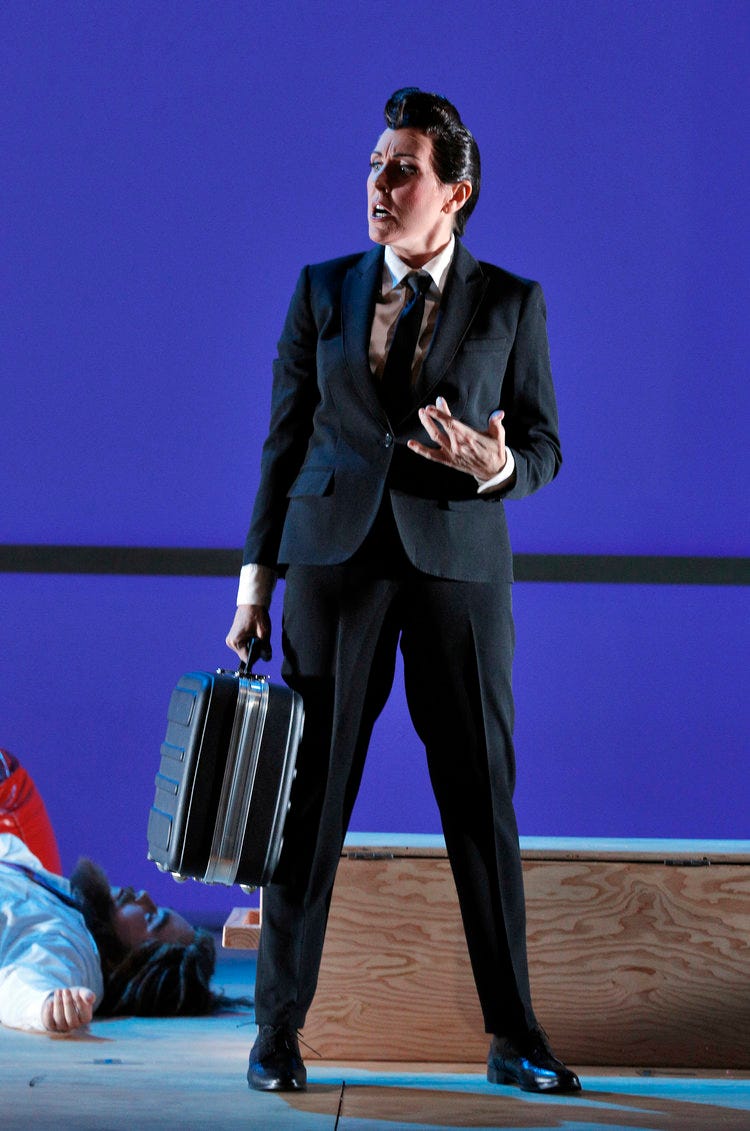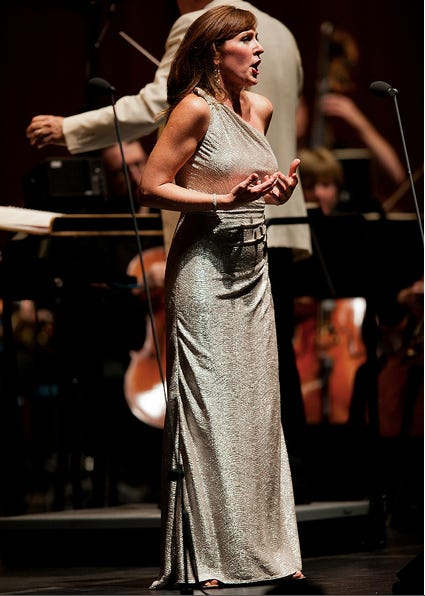Infanta, Der Zwerg. Photo: Los Angeles Opera
Welcome, Mary Dunleavy! Thank you for taking time to share your wisdom and experiences with the readers of The Well Canto Newsletter. I know you’re traveling and performing right now, so thanks for your time. My aim is to provide aspiring creatives with valuable insights from people like you who have successfully spent decades ‘in the biz’. Let’s jump in!
What are the personal qualities, characteristics, and personality traits that helped you become so successful in your artistic life and career?
MD: Since I was a very young girl, I have loved to perform. Before I had any inkling I would be a singer, before I had any formal training, I would put on shows, usually with my sister, and sometimes with the neighborhood kids. I started out dancing and doing gymnastics before I moved to musical theater. I liked to show off and be in front of an audience, even if it was just my parents. I’m going to assume most performers have this desire, but if you don’t, you might want to reevaluate! My sister had a lovely voice too, but she became so nervous in front of a “real” audience, that she knew performing wasn’t for her.
Another quality that I think helped me be successful in my career is that I am a good imitator which may seem like a strange quality to point out. But I have always been good at languages and putting on accents, which I think comes in handy in the operatic world. But I also love foreign languages and truly enjoy studying them and working to sound authentic. I think this ear for imitation has also helped me to understand and interpret different musical styles. Of course, these are qualities that can be developed, but there are some singers who are just naturally musical, natural actors and interpreters - they “get it” quicker than others.
I also love to learn and I think this is an important quality for anyone pursuing a career in music. So much of the work we do is alone in a practice room or with a coach or teacher. It’s the boring, painstaking work of figuring things out. I really enjoy the process of translating, pounding notes and researching. I enjoy the deep dive into whatever I’m working on. I enjoy practicing and coaching my music. I am a bit of a perfectionist (which can be a plus and a minus), but the discipline and drive to do the preparation is, I think, very important.
Let’s talk discipline. Music is a discipline. Maybe discipline and determination are the two most important qualities a performer can have? The discipline to do the work, the slow and boring stuff, to show up prepared and to always be working to improve. The determination to not cave with rejection or criticism. The business of being a performer is tough and can be unfair and sometimes downright brutal. It’s not for the faint of heart. Yet, I admit I am a sensitive soul. I cry easily and have been unable to hide my disappointment or frustration at the most inopportune moments. At times I wished the earth to open up and swallow me whole. But I am stubborn and I refused to quit.
One trait I don’t really have but have learned I needed in this business, is flexibility and grace. One needs to be able to be reflective, honest and adjust if necessary. You don’t always hit a home run and sometimes your opinion just doesn’t matter. Sometimes just getting the job done is what matters more than ego or pride.
Donna Elvira, Don Giovanni. Photo: Cory Weaver
Looking back on your professional life, what brings you the most satisfaction?
MD: My best nights in the theater were when I really connected with the character and the audience - when I was “in the zone” and my inner critic was silenced. That’s when I have felt the happiest and most satisfied with my performance. It doesn’t mean it was perfect but it was authentic and honest and exciting.
I will also say that for me, my happiest memories have also been when I had loved ones in the audience. The critics made me nervous and self conscious, but having my family in the audience inspired me and brought me great joy. Then, the many wonderful friends and colleagues I have met in this business - truly some of the very best humans. I am so fortunate to know and admire so many amazing artists!
Despina, Così fan tutte. Photo: Cory Weaver
In what capacity do you work with up-and-coming artists?
MD: I work privately with classical singers and I teach classical voice at Manhattan School of Music. I also teach a performance class at MSM for 1st and 2nd year singers that I find very rewarding. Passing on what I have learned from my many years of performing is a big responsibility and a challenge. I strive to connect with students on an individual level and try to find the words and motivation that will unlock something for them. I am always learning from them too, and I look forward to this class every year with both anticipation and fear!
Passing on what I have learned from my many years of performing
is a big responsibility and a challenge.
Violetta, La Traviata. Photo: Ken Howard
What qualities in a developing artist do you feel will most point them toward success?
MD: In working with young singers at a conservatory, I’m seeing a different overall vibe than I remember from my years at school. Honestly, I see less motivation, discipline and drive. I think you can never underestimate what it will take to succeed, in a performance career or truly any other competitive field. You have to do more, try harder, work harder than your peers. You have to be open to criticism and be willing to experiment with different ideas/opinions. Talent is important - yes - but it’s not everything. And many talented singers fail and many so-so singers make a career for themselves.
I also strongly believe that young singers need to listen to as much live and recorded performances as they can. Learn the repertoire, know the history and traditions. Listen to different generations of singers and conductors. Know what’s going on in the business. You can’t live in a bubble! And the thing I wished I had done even more of as a young singer - learn your languages! You can’t really truly be a good interpreter of classical music without knowing your languages. And not just phonetics - understanding the language - syntax, conjugations, cadence, etc
I think you can never underestimate what it will take to succeed, in a performance career or truly any other competitive field.
Marguerite, Faust. Photo: Opéra de Montreal
What are some of the personal qualities, characteristics, etc, in a developing artist that most makes you want to work with them?
MD: So many things! First I love to teach and find it so rewarding and interesting as well as challenging. I also feel a deep obligation and responsibility to pass along the traditions and knowledge of this very old art form. I believe it’s crucial to nurture this art form and pass on the knowledge I received from the many incredible artists I have been privileged to work with. It is a living, evolving craft but it is also, I think, very dependent on the past and one can’t “evolve” or make a role/song your “own” without the knowledge of all the came before you.
Lastly, it is my sincere hope that this art form continues to thrive and I hope, maybe, I have a small part in making young singers excited and passionate about this art form.
Christine Storch, Intermezzo. Photo: Tristram Kenton
What concerns you in your work with developing artists?
MD: Not to sound like a broken record, but I think there’s a lack of discipline and a strong work ethic, overall, in the young singers I see. And I will reiterate that to sing classical repertoire successfully and to have an impact, you need to work very hard. Perfecting and honing your languages, style and of course, technique takes time and effort. It’s not an easy path. Also, there are fewer opportunities to perform and this business is even more competitive than when I was starting out. How do you stand out? How do you find opportunities? It’s not going to be easy.
Despina, Così fan tutte. Photo: Cory Weaver
In general, what is your best advice to a developing artist?
MD: Make sure your technique is improving - and if it’s not, ask questions. Singing classical music is challenging but it shouldn’t hurt and you should not be straining. I think some singers equate “difficult” with overworking their instrument and technique. Ideally, you are striving for ease as well as consistency. Languages, languages, languages. Learn them, speak them, practice them. Watch old movies with great actors, read great literature, see live performances of all kinds. They will inspire you and inform you. Practice your piano! Just like Mom said and I didn’t do. If I could go back in time, I would practice my piano!! Singers need to be good musicians.
Ideally, you are striving for ease as well as consistency.
If you had the chance to start over, would you choose the same professional path? Why?
MD: Absolutely! It’s the only career I could imagine for myself. I have loved every minute of it, even the times I was down and lonely and ready to give up. It was always worth it for me. I wouldn’t be who I am today without this art form and my experiences. I am passionate about opera - it’s truly the ultimate art form.
I have loved every minute of it…
Mary’s Biography (and full Website):
https://www.marydunleavy.com/biography-1
Voice Lessons with Barbara
Well Coachings with Barbara
May you live in ease and kindness, with a free heart.




